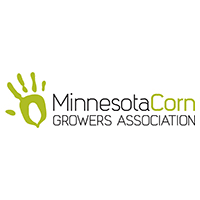
By Amanda Bilek, senior public policy director for the Minnesota Corn Growers Association
Policy makers at both the state and federal level passed legislation last week providing much-needed assistance as America responds to the Coronavirus. Minnesota’s ag sector received necessary funding to support farm operations as they move forward during the crisis.
CARES Act provides relief on the federal level
Congress approved and President Trump signed the Coronavirus Aid, Relief and Economic Security (CARES) Act last week. The bill was the third COVID-19 specific bill, and there is discussion that a fourth bill might be considered later in April.
The CARES Act is a nearly $2.3 trillion economic package providing emergency assistance to individuals, families, businesses and local governments impacted by COVID-19. The package contains some important provisions for farmers who are battling even greater economic uncertainty and market disruptions due to the virus.
The Commodity Credit Corporation (CCC) at the United States Department of Agriculture (USDA) received $14 billion to replenish the fund and augment approximately $9 billion currently in the fund. The CCC funds various farm bill programs (commodity, conservation, livestock), foreign market development and other domestic programs such as the Market Facilitation Program.
USDA also received a separate appropriation of $9.5 billion to help agricultural producers respond directly to the impacts of COVID-19 using the guidance of assistance to livestock, specialty crop and fresh/local producers along with all impacted agriculture producers. These provisions combine to direct about $32.5 billion to USDA to assist farmers. As USDA works to get assistance out the door to farmers, we will be working with the National Corn Growers Association and other federal partners to provide input and will keep our members updated.
The CARES Act also provides $350 billion to assist small business and workers due to economic losses caused by COVID-19. A paycheck protection program, debt relief, loans and grants are all components of the small business package. More information and guidance is available from the U.S. Senate Committee on Small Business and Entrepreneurship, which you can view by clicking here.
Small businesses with fewer than 500 employees, including sole proprietorships, meet eligibility requirements for most programs in this package of assistance and is worth taking a look at if your farm business would benefit from some assistance during this challenging time. MCGA is also working with national ethanol trade associations and the National Corn Growers Association on assistance options for ethanol plants in Minnesota, and the small business package could offer options for ethanol plants.
The other main features of the CARES Act include individual and family support payments in addition to funding to help improve distance learning and telemedicine in rural areas, as well as help expand broadband.
Minnesota agriculture, rural communities receive support in state bill
At the state level, last week the Minnesota Legislative convened on Thursday to pass a $330.6 million bill to help address the state impact from COVID-19 pandemic. Governor Walz signed the bill over the weekend.
The bill passed last week is the second COVID-19 specific legislation for Minnesota policy makers. In mid-March the legislature approved $221 million in funding for the Department of Health and health care providers to prepare for a response to the virus.
The centerpiece of the bill passed last week is the establishment of a $200 million COVID-19 fund that Minnesota Management and Budget would use to help state agencies respond to the outbreak. A COVID-19 Response Commission, made up of legislative leaders, would review expenditures greater than $1 million.
The bill also did include a few specifics for agriculture and rural communities:
Rural Finance Authority Disaster Assistance Program Modification
The bill authorizes the Rural Finance Authority (RFA) to participate in loans to farmers to offset lost revenue when the loss is due to COVID-19 or another infectious human disease for which a governor declares a peacetime emergency.
Finally, the bill also authorizes the RFA to participate in loans to help farmers repair, or replace farm structures, septic and water systems, as well replace seed, other crop inputs, feed, and livestock, regardless of the cause of the damage. Previously these loans were only available when damage was caused from wind, hale, tornado etc. You can find further information or other ways the Minnesota Department of Agriculture is working to assist farmers here.
Commercial Pesticide Applicator Exemption
This portion of the bill exempts a person who applies general-use sanitizers and disinfectants in response to COVID-19 from the commercial pesticide applicator license requirement. Under current law, these products are defined as pesticides and a person applying them for-hire must obtain a commercial pesticide applicator license from MDA. This exemption goes until March 2021.
Small Business Loan Guarantee Program
$10 Million was appropriated for a Small Business Loan Guarantee Program through the Department of Employment and Economic Development (DEED). This program provides loan guarantees of 80 percent of a loan up to $200,000 through a qualified lender to an eligible small business. DEED plans to update the site with a list of qualified lenders as they process applications.
The loans are limited to small businesses of 250 employees or less statewide—that number includes parent companies and if the business has multiple locations. All lending decisions are at the discretion of the lending institution including the rate, term and collateral requirements. FAQs and contact information is available here. This program could be an option for assistance to ethanol plants and other rural small businesses.
Be sure to follow the MCGA blog and its social channels (Facebook, Twitter) for updates. You can also follow me on Twitter (@AjBilek).
